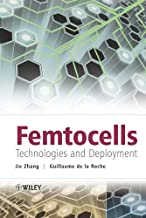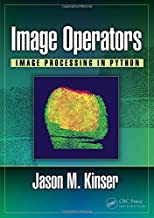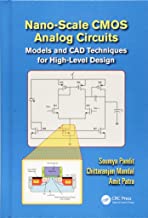Femtocells : Technologies & Deployment
Original price was: ₹9,881.60.₹7,905.28Current price is: ₹7,905.28.
ISBN: 9780470742983
Author/Editor: Jie Zhang
Publisher: John Wiley
Year: 2010
1 in stock (can be backordered)
Description
In this book, the authors provide a comprehensive and organized explanation of the femtocell concepts, architecture, air interface technologies, and challenging issues arising from the deployment of femtocells, such as interference, mobility management and self-organization. The book details a system level simulation based methodology addressing the key concerns of femtocell deployment such as interference between femto and macrocells, and the performance of both femto and macrocell layers. In addition, key research topics in interference modeling and mitigation, mobility management and Self-Organizing Network (SON) are highlighted. The authors also introduce HNB/HeNB standardization in 3GPP.. Furthermore, access methods (closed, open and hybrid), applications, timing synchronization, health issues, business models and security are discussed. The authors also provide a comparison between femtocells and other indoor coverage techniques such as picocells, repeaters, distributed antenna systems and radio over fiber. Lastly, both CDMA and OFDMA based femtocells are covered.
Additional information
| Weight | 0.722 kg |
|---|
Product Properties
| Year of Publication | 2010 |
|---|---|
| Table of Contents | About the Authors. Preface. Acknowledgements. Acronyms. 1 Introduction. 1.1 The Indoor Coverage Challenge. 1.2 Concepts of Femtocells. 1.3 Why is Femtocell Important? 1.4 Deployment of Femtocells. 1.5 Important Facts to Attract More Customers. 1.6 The Structure of the Book. References. 2 Indoor Coverage Techniques. 2.1 Improvement of the Indoor Coverage. 2.2 Outdoor Cells. 2.3 Repeaters. 2.4 Distributed Antenna Systems (DAS). 2.5 Radiating or Leaky Cable. 2.6 Indoor Base Stations. 2.7 Comparison of the Indoor Coverage Techniques. References. 3 Access Network Architecture. 3.1 Overview. 3.2 GAN Based Femtocell-to-Core Network Connectivity. 3.3 3GPP Iuh (Iu-Home) for Home NodeB. 3.4 Evolution to IMS/HSPA+/LTE. 3.5 Architecture with IMS Support. References. 4 Air-Interface Technologies. 4.1 Introduction. 4.2 2G Femtocells: GSM. 4.3 3G Femtocells: UMTS & HSPA. 4.4 OFDM-Based Femtocells. References. 5 System-Level Simulation for Femtocell Scenarios. 5.1 Network Simulation. 5.2 Link and System Level Simulations. 5.3 Wireless Radio Channel Modeling. 5.4 Static and Dynamic System-Level Simulations. 5.5 Static System Level Methodology for Wimax Femtocells. 5.6 Coverage and Capacity Analysis for Wimax Femtocells. 5.7 Overview on Dynamic System-Level Simulation. References. 6 Interference in the Presence of Femtocells. 6.1 Introduction. 6.2 Key Concepts. 6.3 Interference Cancellation. 6.4 Interference Avoidance. 6.5 Interference Management with UMTS. 6.6 Conclusion. References. 7 Mobility Management. 7.1 Introduction. 7.2 Mobility Management for Femtocells in 3GPP. 7.3 Femtocell Characterization. 7.4 Access Control. 7.5 Paging Procedure. 7.6 Cell Selection and Reselection. 7.7 Cell Handover. References. 8 Self-Organization. 8.1 Self-Organization. 8.2 Self-Configuration, Self-Optimization and Self-Healing. 8.3 Self-Organization in Femtocell Scenarios. 8.4 Start-Up Procedure in Femtocells. 8.5 Sensing the Radio Channel. 8.6 Self-Configuration and Self-Optimization of Femtocell Parameters. References. 9 Further Femtocell Issues. 9.1 Timing. 9.2 Femtocell Security. 9.3 Femtocell Location. 9.4 Access Methods. 9.5 Need for New Applications. 9.6 Health Issues. References. Index. |
| Author | Jie Zhang |
| ISBN/ISSN | 9780470742983 |
| Binding | Hardback |
| Edition | 1 |
| Publisher | John Wiley |
You must be logged in to post a review.






Reviews
There are no reviews yet.